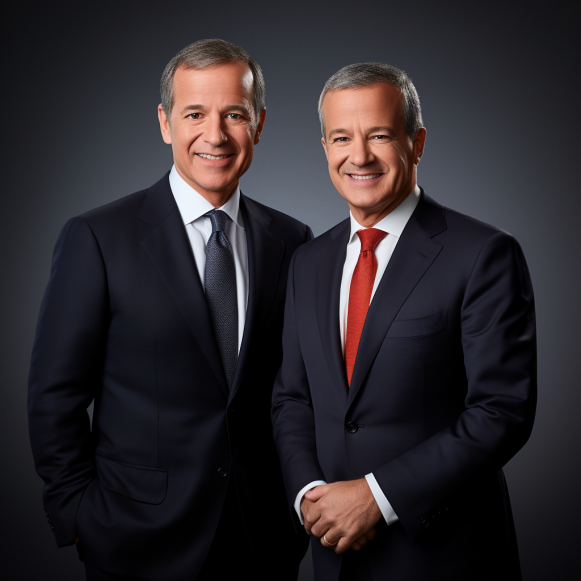Hollywood insiders are bracing for M&A activity to make a comeback, as 10 experts reveal the deals they’re predicting

- The writers’ and actors’ strikes cooled investor demand for M&A deals in Hollywood, experts say.
- But with one strike over and the second in negotiations, dealmaking is expected to pick up.
- Insider gathered bankers, lawyers, and investors’ predictions about the media merger market.
After being stopped for months by the historic writers’ and actors’ strikes, Hollywood businesspeople finally look like they’re ready to say “lights, camera, action” to a new round of mergers and acquisitions.
Big-time media deals don’t always depend on a busy production environment, but people who work in the entertainment industry say that not knowing when Hollywood will start rolling again has kept people from making deals. “Nobody felt like they could think about anything else in this business besides the strikes,” Jonathan Handel, an attorney who works in the media industry and writes a column for Puck News, told Insider.
Other experts on making deals with the media agreed with that: Bankers, lawyers, and investors said that the strikes and the issues that led to them, such as worries about AI and problems with the development process, caused a lot of stress in the industry and slowed down mergers and acquisitions this summer.
Sam Powers, who is in charge of technology, media, and telecommunications for Bank of America around the world, told Insider, “The unknown is hard to do business in.” As major sources of uncertainty, he named “the impact of AI” and “structural questions around linear and streaming.” This makes it “harder for people to do, certainly, transformative M&A — but, even on the smaller side, harder to do M&A that gets affected by those things.”
But people who know what’s going on say that business may soon start up again. Private-equity investors and big companies alike want a piece of the action. PE firms, on the other hand, have record amounts of capital. According to the data firm Preqin, they managed more than $200 billion in assets in the media and telecommunications sector last year.
Without a doubt, the business world is still not safe. The actors’ strike was another big problem for Hollywood that it hasn’t fully recovered from yet. The actors’ union SAG-AFTRA and the Hollywood giants’ negotiating group, AMPTP, broke down last week. This made it less likely that the labor stoppage, which has been going on for more than three months, would end quickly. But members of the Writers Guild of America, which reached a deal with the AMPTP last month, have approved that deal. Now, writers are back to work on new movies and TV shows.
Meanwhile, there was quiet talk of a deal after Disney CEO Bob Iger put some of the company’s assets up for sale. These included ESPN and other linear and cable TV channels. Lots of rumors have been going around about offers and talks of partnerships. If there is a deal, it could make other companies react. Activision was bought by Microsoft for $69 billion on Thursday. This deal has also brought media and tech mergers and acquisitions back into the spotlight.
One optimistic investor at a midsize asset manager that specializes in media said, “In some ways, the best time to invest is when there’s a disruption.” A person who spoke on the condition of anonymity to freely talk about M&A said that investors had been cautious during the strike, but they were hopeful about the future of the deals machine in the industry.
Take a look at what 10 people in the business world told Insider they thought would happen.
Big entertainment companies are looking to sell assets
Legacy media companies are looking for business models that will make money, please Wall Street shareholders, and keep subscribers from leaving. But they are losing the streaming wars to tech giants with lots of cash and are rushing to cut costs by cutting budgets and letting people go.
According to the Bureau of Labor Statistics, 45,000 jobs have been lost in Hollywood since May. This is because of how the strikes have affected business. In order to save $5.5 billion, Iger cut 7,000 jobs at Disney alone.
However, Disney is currently in talks to buy Comcast’s share of Hulu. Iger has also hinted that the company might sell assets that are slowing down cash flow. This summer, the CEO said he would look at different options, such as selling parts of Disney’s traditional TV business, which includes networks like Freeform and ABC. These parts “may not be core to Disney,” he said.
Sources from banks, investors, and analysts say that Disney’s review of its portfolio could lead to similar actions at other conglomerates. “When Disney is putting out there that it’s looking for investors, you have to think that is going to force all the other players to start thinking about what all their options are,” an executive from a media firm said. “It’s going to kick off a lot of activity and energy.”
But there aren’t many people who want linear TV networks, and even fewer who are willing to pay what Disney wants. Nexstar Media Group was said to be in talks to buy ABC. Byron Allen, whose Allen Media Group owns 36 network affiliate TV stations and the Weather Channel, also put in an offer to buy ABC and some of Disney’s cable channels for $10 billion, which he said he could pay for by getting banks and private equity firms to help him. Allen told the press on Thursday that Iger told him Disney wasn’t ready to sell. Disney has said that it hasn’t decided whether to sell any properties yet.
Some other big companies are already trying to get rid of linear assets. For example, Lionsgate is splitting off its studio business into the cable network and streaming service Starz, and Paramount has tried to sell BET. Experts say that legacy companies could also sell assets like real estate (a lot of private equity firms are interested in physical studio spaces these days) or video game businesses (in the case of WBD).
The studio lots aren’t sellingable right now because interest rates are too high, say other experts. Also, WBD needs to get rid of its debt, but gaming is too important to the company to sell. A source close to Warner Bros. Games told Insider that the company is not for sale and that it sees a lot of potential in its gaming business, citing the success of “Hogwarts Legacy” as an example.
Many of the big studios also have smaller assets that could be appealing to a more focused owner. Private-equity investors may be eager to get their hands on some of these spoils: NBCUniversal has Sports Engine and GolfNow, which lets you book tee times. Disney has Disney Digital Network, which used to be known as Maker Studios.
Another thing that always hangs over the industry is the chance—some would even say the certainty—of more consolidation. People are still waiting to see if Comcast can join forces with Paramount Global or Warner Bros. Discovery to boost its streaming efforts and raise its profile as a business. But because of the terms of the merger that made WBD, a deal with them couldn’t happen until 2024.
For sure, tech companies have enough cash to buy a movie or TV studio or even a whole entertainment conglomerate. But they haven’t shown that they’re big buyers of those kinds of properties. Microsoft is focused on games, Amazon is still working to integrate its purchase of the MGM film studio, and Netflix keeps saying that it’s more of a builder than a buyer.
Disney’s ESPN, on the other hand, might be the only one not streaming live sports as much as other streamers. Some insiders think Apple could eventually buy it to strengthen its position in live sports.One investor told Insider that “people have been holding their breath in nervous anticipation” about the tech companies making an offer to buy big media companies. “They can,” this person said. “But it’s not a foregone conclusion that they will.”
Private-equity bets on media and Hollywood have seen mixed results
Private-equity firms may have the money to buy big media companies, but they know that the market will change quickly.
Some media companies’ values have dropped because of this year’s bad economic conditions, but interest rates are still high, which could make the idea of taking out a big loan to pay for a leveraged buyout feel even more daunting. At the same time, companies like movie studios and production services have been getting loans from these companies’ private credit arms.
PE investors are known to do a lot of research on potential acquisition targets in order to make accurate profit and loss projections. Handel says that this task has become more difficult since the strikes began.
It’s hard to make predictions about a business’s growth when sales are down and business relationships are messed up. “Logistically, you’ve got executives whose attention is focused elsewhere,” he told us. “When a lion is pacing outside the door, you don’t talk about redoing the roof.”
Handel went on, “There’s not just risk issues.” “The issue is noise in the data,” he said, adding that a lot of it would be “stale” because it was collected before the strikes.
In the two years before the strikes, private equity firms bought a lot of media companies to take advantage of the rise in streaming and live entertainment. For example, Blackstone-backed Candle Media bought Moonbug, a kids’ show, Reese Witherspoon’s Hello Sunshine production company, and more. RedBird Capital Partners has put millions of dollars into sports and media, including Jeff Zucker’s RedBird IMI, a partnership with Abu Dhabi.
Private asset managers seem to have enough money to make deals because they have more “dry powder” (capital that hasn’t been used) than ever before. SP&G Global Market Intelligence said that by the middle of 2023, the amount of dry powder in private equity around the world had grown to almost $2.5 trillion.
There are, of course, other things that could stop PE firms from buying things.
A recent report from Bloomberg said that Candle Media’s earnings for this year are about 50% lower than what the companies they bought had predicted. Candle Media was started with more than $1 billion in capital from Blackstone. One person who works for a private equity firm said that in the past year, at least 12 independent production companies, some of which were backed by PE firms, have tried to raise money but have been unsuccessful.
The co-CEOs of Candle Media, Tom Staggs and Kevin Mayer, told Bloomberg that the lackluster results were due to a “unprecedented” number of problems, such as the strikes, lower industry spending, and a soft advertising market. Other private equity firms have had more success in the media space. For example, Apollo Global Management’s $5 billion bet on Yahoo in 2021 paid off, and the digital media giant has grown a lot since then.
Insider has heard from investors that they are excited about the new companies that are starting up where AI and media meet. This is a market that will likely grow to be worth nearly $100 billion by 2030.
As an excited investor in the media-focused asset manager, the person also mentioned new chances in data analysis that could help creatives (like showrunners and writers) who want to know how their IP does on major streaming services. During the strikes, one of the most important issues was that streamers weren’t sharing audience data openly. In their new deal, writers got some changes made to how streaming metrics are shared.






